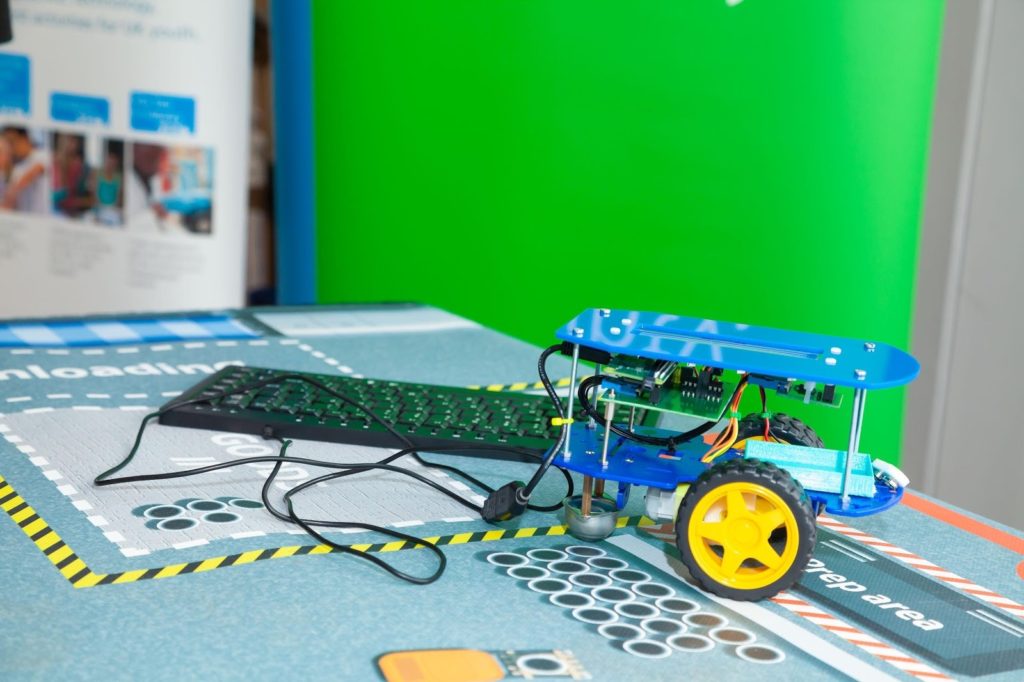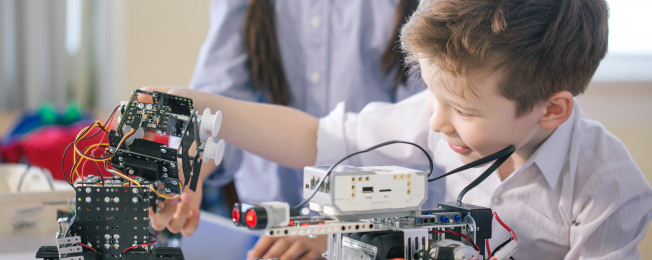What does HTML have in common with Morse code?
They’re both forms of communication and they’ve both been used to inspire students in the UK to take up careers in science, technology, engineering and mathematics – known collectively as STEM.
The UK is facing a skills gap in these areas. Many companies in the country report having difficulties in recruiting people with STEM qualifications, while the government has called the problem a “major risk” to growth and innovation.
But students are keen to learn. Earlier this year, more than 700 teenagers from schools in Liverpool took part in a five-day Digital Explorers event, run by Education Development Trust (EDT) in partnership with Tata Consultancy Services (TCS).
In one session, focusing on how technology has developed over time, they built a simple circuit and light, transmitted Morse code to each other and then decoded the messages.
They also learned about emerging technologies, debating whether cryptocurrencies, AI and the internet of things would improve lives, and spent time asking industry experts questions.

The event was hugely popular, with 75% of the children who attended saying they’d be more likely to consider a career in the digital or technology sector after that day’s activities.
“It was really fun and informative,” says Megan, a pupil from Holly Lodge, one of the schools participating. “I learned a lot about technology that we will use in the future and how to get a job in computer science, which is something I would really like to do.”
Stephen, from The Studio School, was similarly enthusiastic: “I’m really interested in how engineering and technology is marketed, so looking at how it is applied in real-life scenarios has been valuable. Meeting people from the industry has shown me what it’s like to work in a technology sector job.”
Sparking a lifelong interest
Digital Explorers events are a key part of TCS’ STEM outreach programmes, which have helped hundreds of thousands of UK students embrace their curiosity about careers in technology.
Following the success of the first Digital Explorers event in London in 2017, they’ve been held in Birmingham, Edinburgh and Peterborough.
One school that attended the Edinburgh event last year was so impressed by the impact it had on pupils, it recently ran its own – just for girls.
More than 200 girls from Auchmuty High School in Fife tackled challenges, including coding and rescuing a robot, at the event supported by EDT and 20 TCS volunteers, who mentored the students.
The school’s Head of Computing Science, Jamie Edgar, who organized the day, believes such initiatives could help reduce the STEM skills gap between genders.
“We know that by the time girls enter senior school, there is a real difference in which subjects are being picked,” he says.
“This is the case across schools from every area, but we are hoping that by engaging with them at an earlier stage of their education, we can start to address the gender imbalances, particularly within STEM subjects.”
Closing the digital skills gap
With new innovations rapidly changing the world of work, in what TCS calls the era of Business 4.0, skills in science, technology, engineering and maths are more important than ever.
But UK companies are reporting gaps in digital skills, with more than 75% of executives experiencing recruitment problems and only a small number believing graduates have adequate digital skills.
Unless the current workforce is retrained and the workers of tomorrow taught adequately, it’s predicted the UK could lose out on £140 billion in the growth of its GDP over the next decade.
Which is why programmes like Digital Explorers, which introduce students to the exciting potential of careers in IT, are so vital.
“For many of the students, we helped strengthen an existing interest in technology,” says TCS New Media Manager David King, one of the volunteers at the Liverpool event.
“For some, we opened up the possibilities of a future they had not previously considered.”


